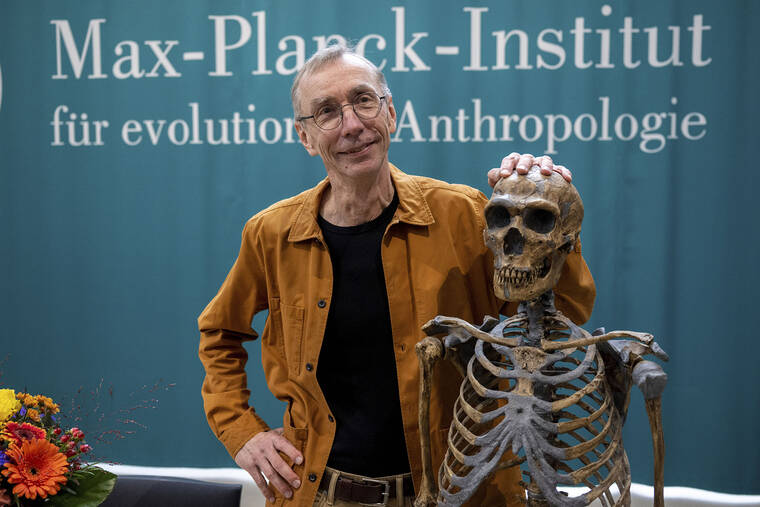Nobel win for Swede who unlocked secrets of Neanderthal DNA
LEIPZIG, Germany (AP) — Swedish scientist Svante Paabo won the Nobel Prize in medicine Monday for discoveries in human evolution that unlocked secrets of Neanderthal DNA that helped us understand what makes humans unique and provided key insights into our immune system, including our vulnerability to severe COVID-19. Techniques that Paabo spearheaded allowed researchers to compare the genome of modern humans and that of other hominins — the Denisovans as well as Neanderthals.
“Just as you do an archeological excavation to find out about the past, we sort of make excavations in the human genome,” he said at a news conference held by Max Planck Institute for Evolutionary Anthropology in Leipzig. While Neanderthal bones were first discovered in the mid-19th century, only by understanding their DNA — often referred to as the code of life — have scientists been able to fully understand the links between species. This included the time when modern humans and Neanderthals diverged as a species, around 800,000 years ago.
“Paabo and his team also surprisingly found that gene flow had occurred from Neanderthals to Homo sapiens, demonstrating that they had children together during periods of co-existence,” said Anna Wedell, chair of the Nobel Committee.
This transfer of genes between hominin species affects how the immune system of modern humans reacts to infections, such as the coronavirus. People outside Africa have 1-2% of Neanderthal genes. Neanderthals were never in Africa, so there’s no known direct contribution to people in sub-Saharan Africa. Paabo and his team managed to extract DNA from a tiny finger bone found in a cave in Siberia, leading to the recognition of a new species of ancient humans they called Denisovans. Wedell called it “a sensational discovery” that showed Neanderthals and Denisovans were sister groups that split from each other around 600,000 years ago. Denisovan genes have been found in up to 6% of modern humans in Asia and Southeast Asia, indicating interbreeding occurred there too.


